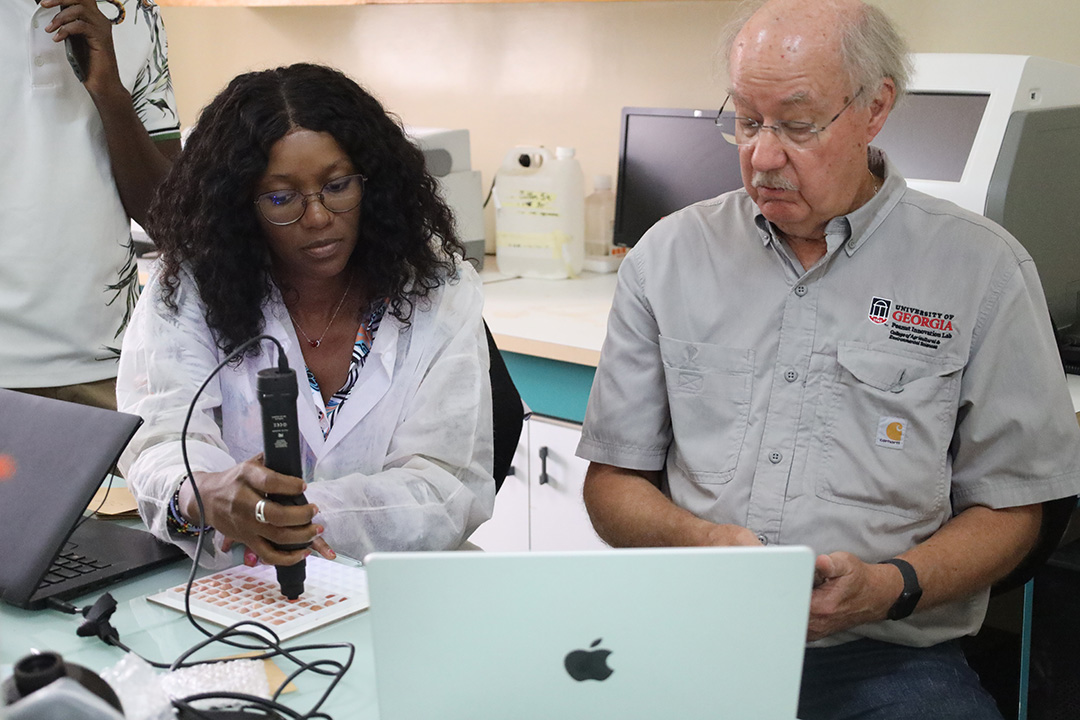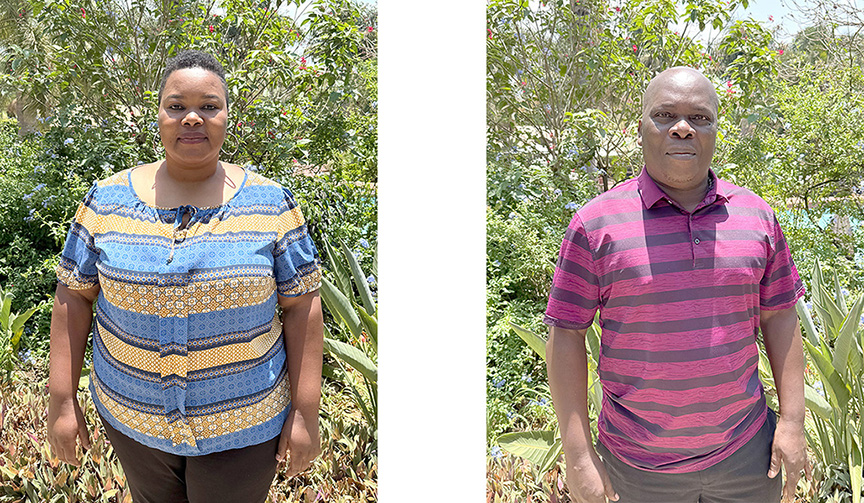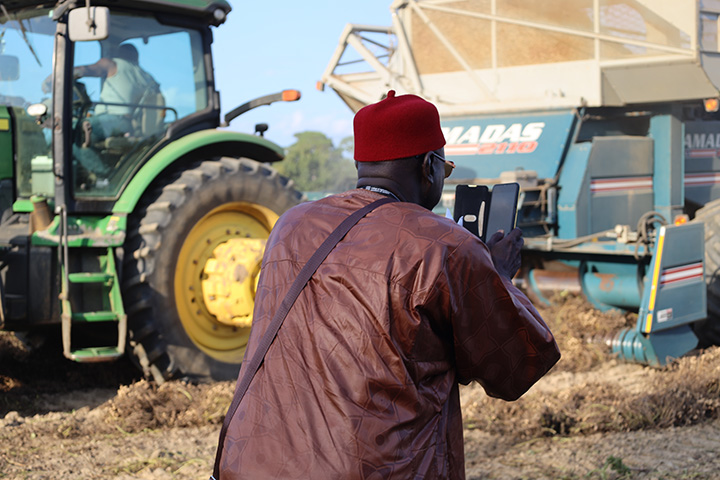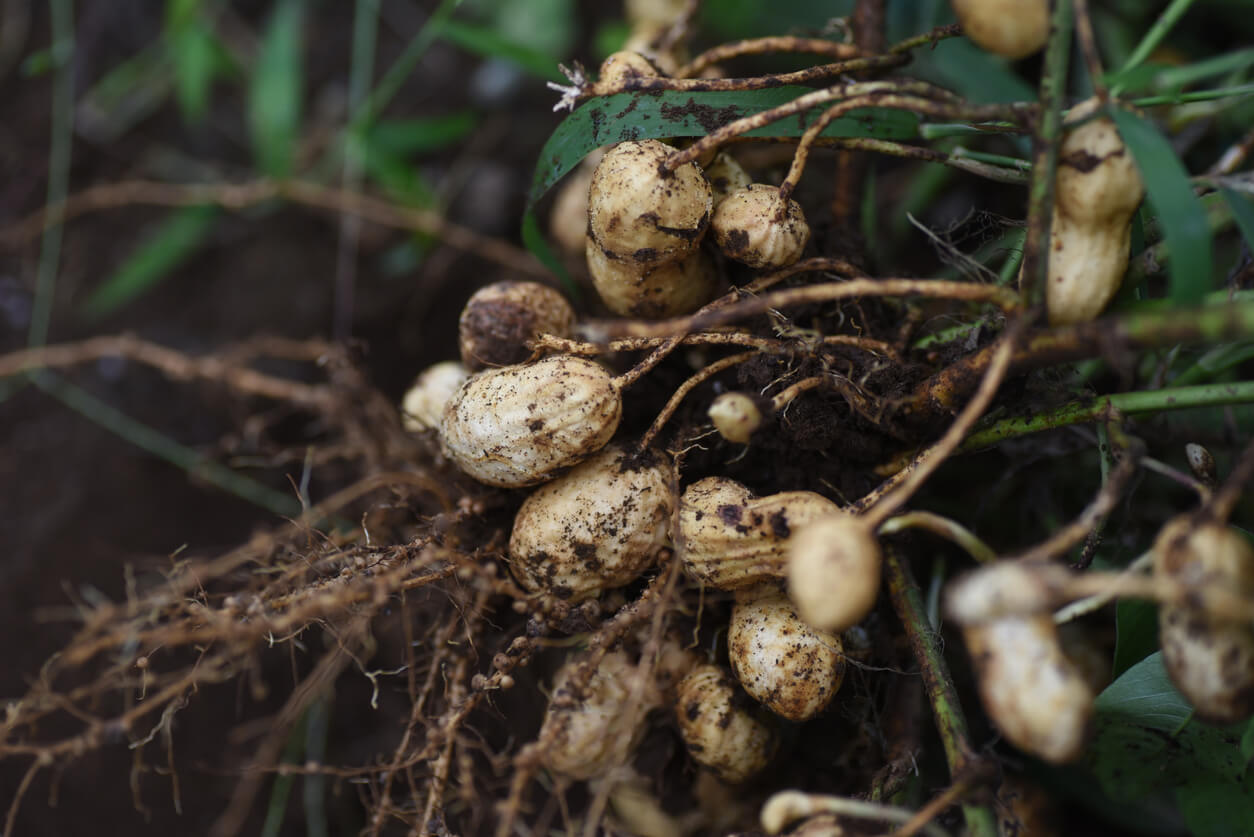
In an innovative South-to-South training program organized by the Feed the Future Innovation Lab for Peanut, Senegalese experts welcomed Malagasy interns to their west African country this year for an immersive learning opportunity that covered topics from the basics of planning research trials to the most high-tech genetics analysis.
Eight interns from Madagascar arrived in Senegal in July for training in designing, conducting and assessing breeding trials, specifically in sorghum and peanut.
Four of the interns focused on peanut production and studied in Senegal for three months, beginning before planting season and learning until near harvest time. Four interns specializing in sorghum production completed a 30-day version of the training and returned to work in Madagascar in August.
The Peanut Innovation Lab began work in Madagascar in January 2024 under a buy-in from the USAID mission there and in partnership with the Global Collaboration on Sorghum and Millet at Kansas State University.
“While groundnut has been grown and consumed in Madagascar for years, we could tell early on that partners could benefit from practical, hands-on training on how to conduct effective variety trails and make them more standardized across the country,” said Dave Hoisington, director of the Peanut Innovation Lab. “A South-to-South collaboration with researchers in Senegal just made sense. CERAAS has a long history of supporting regional partners in francophone West Africa and could provide specific training these interns need to conduct quality variety trials.
Rotating between Institut Sénégalais de Recherches Agricoles (ISRA) campuses in Thies, Bambey and Nioro, the group completed modules in trial design, planting, crop management, disease scoring, data collection, data evaluation and more.
“When I was doing my thesis research, I wasn’t really interested in seed production or variety development,” said Miantso Rakotoarivony. “Now, I see that seed is a problem in Madagascar. It’s expensive and not very good. But seed is the basis of everything.”
Working alongside plant breeders in Senegal, she saw the value of plant breeding, practiced the skills they use and saw how their work impacts millions of farmers. Now, she’s considering a PhD in plant breeding, she said.
Approaching the end of 12 weeks of intensive, hands-on study in Senegal, the group of groundnut interns were eager to practice the new skills they’d learned and apply theoretical lessons in the field.
DNA extraction was a particularly interesting module, the interns agreed, and they were eager to try different methods to test for hybridity in their own trials at home.
One of the mentors, ISRA plant breeder and geneticist Issa Faye, encouraged them to learn all they can, but know that they work in a team.
“It’s not necessary for you to do everything. It’s not even necessary for you to know how to do everything. But it is important that you know all the possibilities and have the network of experts to get something done,” Faye said.
As the interns returned to Madagascar, researcher Tossim Hodo-Abalo traveled with them to Madagascar and help them design and establish trials as part of the Peanut Innovation Lab and FOFIFA partnership to identify improved groundnut varieties for local farmers.
In the end, George Randriamampandry was happy to learn and to practice those new skills, but also saw value in traveling to Senegal to do that work.
“When you don’t leave home, you don’t see the opportunities to change,” he said. “When you travel, you see new things and come home with new ideas. You bring home new opportunities with you.”






